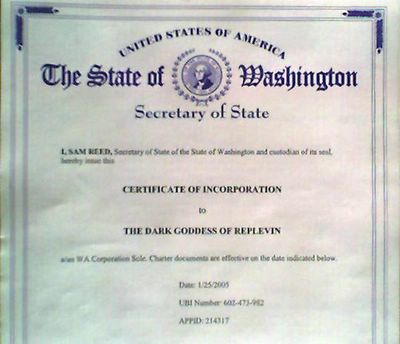I have a bias, I admit it. I am sensitive to studies with a subtext of "those stupid patients, what are we going to do about them?" Read the following rant with that in mind.
A pharmacy benefits manager a/k/a PBM funds a study of patients nonadherent to chronic prescription medication. The premise of the study, Effect of Reminder Devices on Medication Adherence: The REMIND Randomized Clinical Trial (hiding behind a paywall, by the way), is that "forgetfulness is a major contributor to nonadherence to chronic disease medications and could be addressed with medication reminder devices." Thus, the intervention consisted of sending a population which included folks taking meds for schizophrenia and bipolar disorder either "a pill bottle strip with toggles, digital timer cap or standard pillbox" along with their mail order meds. There was of course a control group who received neither notification or a device. Surprise, surprise! Getting a prize in your Crackerjack box from your PBM does not improve medication adherence. Those stupid patients! Why won't they do what's good for them?
Well, let's take the most basic first step and look at the evidence that the REMIND paper cited in its very first footnote to support its premise that patient "forgetfulness" is the problem. The paper cited is not, thank you very much, behind a paywall. Its very title should have been a tipoff: "Unintentional non-adherence to chronic prescription medications: How unintentional is it really?" This study concluded that "For our study sample, unintentional non-adherence does not appear to be random and is predicted by medication beliefs, chronic disease, and sociodemographics. The data suggests that the importance of unintentional non-adherence may lie in its potential prognostic significance for future intentional non-adherence. Health care providers may consider routinely inquiring about unintentional non-adherence in order to proactively address patients' suboptimal medication beliefs before they choose to discontinue therapy all together [sic]" (emphasis added]
Reading further in the paper I've just linked to (which I highly recommend you do), "medication beliefs" include such things as "perceived need for medication"--statins, anyone?--and perceived medication affordability.
Let's go a little further and consider something obvious about clinician-patient dynamics in an era of managed care. How many clinicians take the time, or have the time, to initiate a thoughtful discussion with a patient regarding the benefits and risks of a course of long-term medication being recommended? A statin, say, or low-dose aspirin for primary prevention, in someone who feels just fine? How many patients will push through the clinician's subtle (or not-so-subtle) signals that s/he is pressed for time to initiate and then persist in a discussion, which might persuade a patient on the fence about the recommendation that there is an actual need for the medication? Or might even lead the patient and provider to jointly conclude that this long-term medication is not, after all, warranted?
Consider this: the more important you believe something to be, the easier it will be to remember to do it. "I forgot" is a convenient excuse we offer, after all, to our doctors. It is more polite, and less time-consuming, than initiating an uncomfortable conversation by saying, "I don't see the point of this/I am experiencing unpleasant side effects/I cannot afford this/I am overwhelmed by the 'treatment burden.' " Such comments can be taken as a direct challenge to the provider's authority, although they might stem from the provider's failure to communicate with/empathize with/educate the patient adequately in the first place.
A patient on insulin therapy is unlikely to forget to use insulin. It's obvious that insulin is important. This suggests another possible flaw in the study design. It excluded patients taking more than three medications, apparently because their dosing regimes are just too complicated (math class is tough!). It would be interesting to learn if patients taking more medications might actually be more adherent because they feel that the stakes are higher. Alas! We will never know, at least from the authors of this study hellbent on reminding these silly patients who just cannot remember what is good for them. Although the study design notably did not include smartphone apps such as Mango Health that "gamify" taking medications and could use more investigation.
I feel compelled to point out as well that patients getting their meds mailed from their PBMs are by definition not in regular contact with an overlooked, underrated member of the patient's care team: a flesh-and-blood pharmacist who reinforces dosing instructions, and provides that human touch. Yes, it is possible for a patient to make contact with an actual pharmacist at a PBM, but I wonder how many nonadherent patients are aware of that.
I should finally note that many patients view PBMs as an arm of their insurance company (which in fact they are) and may have viewed what appeared to be medical advice coming from their insurer as inexplicable and suspect. Indeed, "[b]ecause the study devices are currently available for commercial use and because participants received the devices by mail and could choose not to use them, patient-level consent was waived by Chesapeake Institutional Review Board." Not obtaining consent may have made the study less useful, but I'm sure it was cheaper, amirite?
The writeup of the REMIND study grudgingly concedes towards the end that "because nonadherence is a multidimensional problem, addressing forgetfulness alone may have been insufficient to improve actual medication taking." This spectacularly misses the boat. Because it's not truly a problem of forgetfulness at all.
Subscribe to:
Post Comments (Atom)

No comments:
Post a Comment